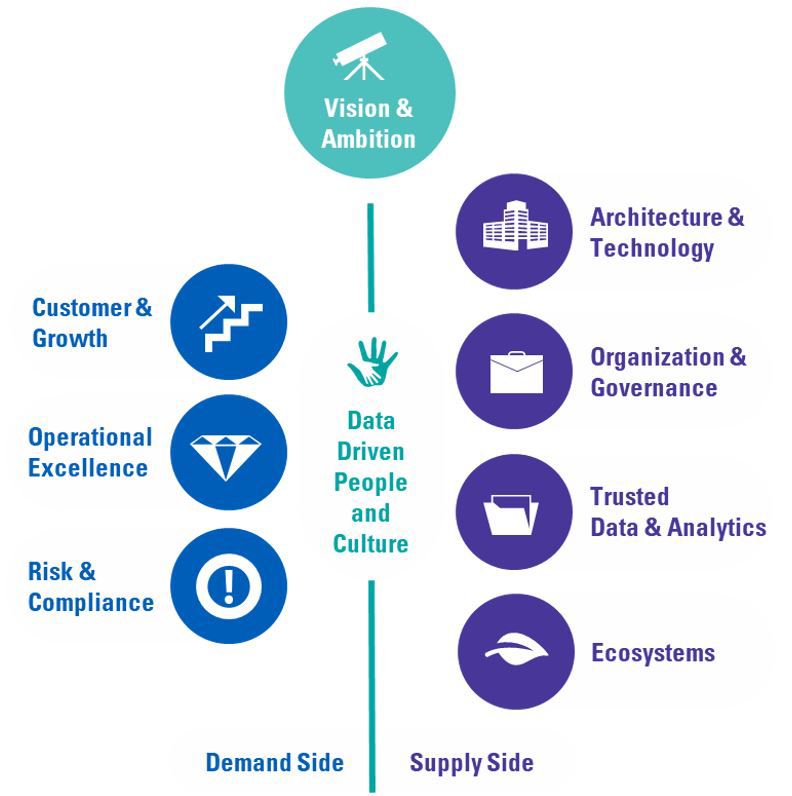Data as the source of success
In a digital world, data is the source of business success and hence of value. Although virtually every business leader understands that, effectively accessing that source for the whole organisation and achieving the speed required in a challenging environment often proves troublesome.
There is usually no shortage of innovative ideas and great business cases around data. What is often lacking is an organisation that understands that data is central to success across the board – along with the right skills, processes and structures to unlock the massive potential of data and to do so in a controlled manner.
That situation is no longer tenable.
An organisation needs to be genuinely organised around this essential source of value. That calls for a new perspective on design principles. Because it is no longer enough to give data a place in the organisation. It goes beyond that: from now on, the use of data IS the design principle.
A holistic approach to data and analytics
In our view, this kind of development towards a data-driven organisation calls for a holistic approach from all companies, with a focus on seven domains. By devoting attention to these domains in a balanced way – in both strategy and execution – ideas for using data really do move from the drawing board to practice. The model explicitly demonstrates that success depends not only on high-quality technology but also (and sometimes above all) on less tangible aspects such as corporate culture.
We help our customers to successfully transform their organizations digitally by combining data-driven technology with our extensive domain knowledge. The worldwide KPMG network ensures that we can also provide you with expertise at local level.

The importance of a data-driven organisation
Despite the growing desire to gather, store, report and analyse data, 79% of Dutch businesses are having difficulty implementing a data-driven operation. The ability to understand, use and analyse data and base daily work activities on it is the biggest challenge for a data-driven culture. At the same time, data-driven operations are still too often limited to Finance, Sales and Marketing departments, for example. This is not conducive to a consistent quality of data that can be applied company-wide.
How can you have confidence in data and algorithms?
We are heading for a world in which behaviour and decisions are highly influenced by data. But what if data analysis results in the wrong decisions? Or if you don't have the right data, algorithms or processes to draw the right conclusions?
Many businesses are becoming increasingly dependent on data and on decisions based on analysing that data. We see trust in data analysis eroding more and more and becoming an increasing issue for policymakers, regulators and various consumer organisations. However, as a company, how confident can you be that you are generating the right data, are interpreting them correctly and are adding value to your organisation in the right way? Data and algorithms you can trust implicitly, so that you can sure the insights you obtain from them are accurate, appropriate to the challenge and point you towards the best solutions. Solutions that are correct, create long-term value, save costs, increase returns and limit risks.







